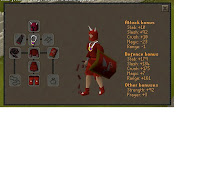Heaven and Hell
Still revelling in Tigrai, the northernmost province of Ethiopia. It's the one that sometimes features on the news, as every ten years or so the rains fail and they have a (whisper it) famine. It's fairly dry and dusty compared to the rest of the country which is pretty lush, but then it is the end of the dry season. Everyone's just waiting for the rain, when the great plains will gush forth in fertile abundance.
Yet it has a great majesty, with soaring peaks and sandstone bluffs dominating the plains dotted with giant Euphorbia Candelabra cacti/trees. The Gheralta plain, which I spent a few days wandering round, looks suitably Death Valley - I even saw tumbleweed. I've been thinking of making an Ethiopian Western - "Tigrai Cowboy: Nothing's just black or white." The difference is that in each of the sandstone fingers bursting through the parched earth some enterprising little
blighter has carved out a church and decorated it with startling paintings. No, not at the bottom. In one case I was climbing up toeholds and fingergrips in the wake of a 60-odd year old priest,
before edging along a long but narrow ledge 200 metres above nothing at all. It certainly tested my newfound contempt of vertigo, especially when I found that the same metre wide ledge was now a perch for several of the hangers on I'd generated, whom I had to squeze past on the outside track.
That is one of the problems with Tigrai. It being a little off the tourist circuit, there are less professional 'friends' who want to sort things out for you at a vastly ridiculous mark-up ("You could get the bus there for 25 Birr return, or I could ddrive you for 1,000 Birr"), but the children & youths can be a bit overwhelming,
especially as you get further into the countryside. Ethiopia has a huge number of children, and should they ever rise up against the adults will surely triumph through sheer weight of numbers.
They also have little to do (the only two toys I've seen are hoop & sticks and the occasional inner-tube), can even be totally uneducated if you're really far out, and have been taught to see Faranjis at the very least as sources of amusement, but more often as infinite funds of money or pens. City kids will rush to shake your hand and may drop in a cheeky "Give me?" Unfortunately as you penetrate further into the hinterland the wave almost always moves in a fluid motion into the begging motion, despite the fact almost all the kids I've seen are well-fed and healthy looking.
Country kids can often be seen running for about a kilometre to get close to the Faranji they've spied. Sometimes this is benign, but still a bit much, as when 50 children surround you and follow your every move, occasionally chucking out an English question and giggling in response. They can watch you sit for half an hour with deep fascination. This has occasionally made me stay in my hotel rather than face being the focus of all the tiny consciousnesses, which can
get very wearying.
Sometimes it's not so nice though. On two separate occasions children have thrown rocks at me when I've refused to give them money. I explain I don't want a guide, that I like walking on my own, and that I have no money to give them. They still decide to follow me, until we reach a significant uphill where they decide enough is enough and start demanding money. When I've told local men about the rock throwing, they've gone and thrown soem rocks back, then appointed themselves as my guides, and demanded money.
There really is no need for guides out here; the paths are always worn by centuries of passage, and guides just babble nonsense in your ear instead of letting you enjoy the peace and extreme beauty of the area. The days I've avoided attracting hangers on have been some of my best
ever, reaching lonely peaks and gazing down at the birds of prey tussling. Still, anyone I come across follows up their puzzled "Where's your car?" with a "Where's your guide?", and an attempt to introduce themselves as a suitable candidate. There's very little for youths to do whilst they're waiting for the rains, and everyone knows that Faranjis have unlimited funds of money.
This assumption has been quite comical sometimes. At one hotel without water I was offered a room with private shower for twice the price of a room using the common ones: "But given that there's no water, why would I take the en-suite room?" "Because you're rich!"
It is interesting becuase we have such different concepts of greed. A lot of westerners come away from Ethiopia feeling that the locals are greedy and love money, because they always seem to be trying to wheedle some out of you for ridiculous reasons. But conversely, a lot
of Ethiopians think that Faranjis are greedy and love money because they don't just share it with the locals. An Ethiopian with money would just give it out to anyone who asked, and even push it on a few who didn't. Needless to say, this has adverse results on Ethiopia's investment climate. People don't save money for the future, they just hope if they share what they have now then others will share with them in the future if they fall on hard times.
Some tourists get a bit weird with all this. I met an Italian in his 40s walking round Gheralta who said he'd chosen not to go actually into any of the churches, because it was a rip off. They range in price from 1 pound 25 to just under 4 pounds - averaging 3 quid. They were carved out of the rock hundreds of years ago and have astonishing murals from a unique artistic tradition. I refuse to pay people for making my day worse, but I feel it's fair enough to pay an old priest
(you should see some of these guys, more weathered than the rock sanctuaries they tend) to climb for half an hour to let me see a sacred treasure. And if you're friendly and respectful they'll share their disgusting Tella with you and have a wee sing song of one of their interminable hymns, which I swear they make up as they go along.
And I should emphasize, apart from a few bad experiences noted above, generally things have been really great. The countryside is beautiful, the curches real world treasures, and on the days I was a subject of some stone throwing, I spent a good hour playing with one of the sweetest children I've ever met. She would do her 'floppy-woppy jumping bunny dance' (may not be exact translation) and then laugh hysterically when I replied with the 'shakey-wakey head dance'.
And most people you meet are friendly, and after nothing other than a chance to practice their English (or show off to their friends what they know) or a chance to meet a real life Faranji and welcome them to their country (though walking against the traffic on market day can be
bruising as everyone will want to shake your hand which includes a shoulder clash or two). In the more urban situaions the children can be lovely, and the people friendly without any expectations at all - although you do tend to miss the breathtaking scenery. For every bad
apple, an orchard of friendliness blooms .
I really enjoyed Wukro, particularly because of the hotel I was staying in; one which a passing Tourist official ran and told me not to stay at as it was 'unfit for foreigners'. It was lovely and ran by a really welcoming family, who aside from a room for 1 pound 25 threw in as many coffee ceremonies as I could manage, as well as fruit from trees growing in the courtyard (Papaya and a delicious but mysterious Kazmierz fruit - green with white flesh, sweet but odd flavour), and
bread and milk in the morning. I had to force money on them for washing my clothes, and looking after my big pack when I went deep into the country to visit the further off churches. The only bad things about Wukro was their unforgivable lack of fruit juice joints, and the fact that restaurants wouldn't serve me anything apart from Tibs (fried meat, very nice, but plain after a while) or omelette. I would even point to what someone else was eating after all else had
failed, and they'd nod and bring back an omelette. "Faranjis can't handle our (not actually That) spicy food."
I'm now in Mekele - the capital of Tigrai. It's got more than one paved street! And traffic lights! Luckily it doesn't have the attendent evil of traffic, though you do have to look before you cross
the road. Juice runs freely (but, thankfully, spoon-standing-up-in-it thickly). It has a street where every building is high rise, but also has lots of back streets with the typically Tigraien handsome stone houses, which come straight from Italian hill villages (if they had universally decided that corrugated iron roofs were the way forward). Plus I had a hot shower this morning! The trappings of development have sent me a bit giddy, but I'm heading back to the wilderness as I trek south to reach the fabled Lalibella, before heading on to the wonderful Lake Tana with its island monasteries. I should reach Addis in the next couple of weeks.
Keep being good boys and girls - Santa always knows,
Simon
Thursday, 21 May 2009
Subscribe to:
Post Comments (Atom)


No comments:
Post a Comment